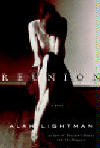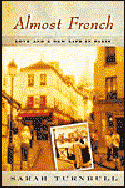One title slated for a January debut is available now--Tracy Chevalier's The Lady and the Unicorn. Publisher's Weekly says this romance revolving around the six related medieval tapestries now hanging at the Museum of the Middle Ages in Paris is "enthralling." I'd be requesting a library hold in a heartbeat if I were assured that it would be more engaging than Falling Angels. After the exquisite Girl with a Pearl Earring, I'm more than ready for an encore. Reviews look promising, so I'm hopeful. An interview with Chevalier reveals her thoughts about the book. For some reason, Blogger is not linking to the interview or her website. To locate the interview, try Googling this search string minus the quotes: "chevalier lady and the unicorn interview oberlin". To read the first chapter, follow this link: http://www.tchevalier/unicorn.com.
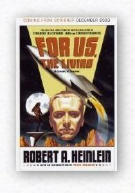 For the fans of Robert Heinlein, his so-called "lost" first novel will appear sometime in January. For Us, the Living: A Comedy of Customs, written circa 1938-1939, introduces themes and literary devices that he explored in more depth and to greater effect in his subsequent novels. Still, anyone with more than a passing affection for Heinlein will be curious to see how this early attempt at novel-writing compares with his more mature work.
For the fans of Robert Heinlein, his so-called "lost" first novel will appear sometime in January. For Us, the Living: A Comedy of Customs, written circa 1938-1939, introduces themes and literary devices that he explored in more depth and to greater effect in his subsequent novels. Still, anyone with more than a passing affection for Heinlein will be curious to see how this early attempt at novel-writing compares with his more mature work.
 Time for one personal flashback: Whenever I look back on books and the year 2003, I will remember it as the year I concluded more than five years of writing and research on my tome Women During the Civil War: An Encyclopedia, which was published in November. It's a great feeling to know that it's finished, that a fire did not destroy my papers and files or my house--does every writer worry about this?--, and that I no longer have to be immersed in the Civil War unless I choose to! Actually, I have several Civil War women-related ideas in the percolator now.
Time for one personal flashback: Whenever I look back on books and the year 2003, I will remember it as the year I concluded more than five years of writing and research on my tome Women During the Civil War: An Encyclopedia, which was published in November. It's a great feeling to know that it's finished, that a fire did not destroy my papers and files or my house--does every writer worry about this?--, and that I no longer have to be immersed in the Civil War unless I choose to! Actually, I have several Civil War women-related ideas in the percolator now.
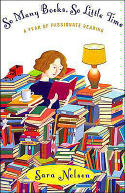 Just finished Sara Nelson's
Just finished Sara Nelson's 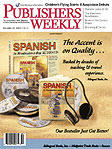 I spent a ridiculous thirty minutes this morning writing an e-mail to Joseph Tessitore, Vice President of
I spent a ridiculous thirty minutes this morning writing an e-mail to Joseph Tessitore, Vice President of 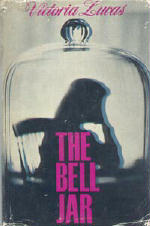 Elizabeth Sigmund, once a close friend of Sylvia Plath, blasts all the mythmaking in the film Sylvia, according to an article in
Elizabeth Sigmund, once a close friend of Sylvia Plath, blasts all the mythmaking in the film Sylvia, according to an article in 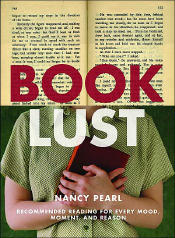 Only three days left to select the best books you read this year! Feel free to choose a book for one, two, or all of the categories. Record your selections in the "Comments" section at the top of this entry. Results will be published and discussed during the first week of January. Deadline for submissions: December 31 at 11:59 p.m.
Only three days left to select the best books you read this year! Feel free to choose a book for one, two, or all of the categories. Record your selections in the "Comments" section at the top of this entry. Results will be published and discussed during the first week of January. Deadline for submissions: December 31 at 11:59 p.m.
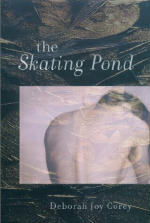 About a week before Christmas, I discovered The Skating Pond by Deborah Joy Corey, a hauntingly poetic novel that examines the fourteen-year-old narrator's experience of the calamitous collapse of her family and her subsequent plunge into adult life. At first I was struck by the way Corey's lyrical descriptions sometimes overwhelmed her scenes, far beyond their capacity. The overwriting was compelling enough, however, that I read on regardless.
About a week before Christmas, I discovered The Skating Pond by Deborah Joy Corey, a hauntingly poetic novel that examines the fourteen-year-old narrator's experience of the calamitous collapse of her family and her subsequent plunge into adult life. At first I was struck by the way Corey's lyrical descriptions sometimes overwhelmed her scenes, far beyond their capacity. The overwriting was compelling enough, however, that I read on regardless.
 A misty Christmas morning on the marsh. I have had very little spare time in the past four days or so. When I have caught a few moments to relax with a book, I've been too exhausted to concentrate. That was my situation last evening. When we returned from the Christmas Eve candlelight service, I walked the dog in a heavy-limbed daze, then flopped on the couch with
A misty Christmas morning on the marsh. I have had very little spare time in the past four days or so. When I have caught a few moments to relax with a book, I've been too exhausted to concentrate. That was my situation last evening. When we returned from the Christmas Eve candlelight service, I walked the dog in a heavy-limbed daze, then flopped on the couch with 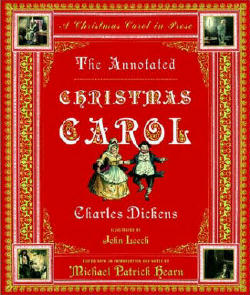

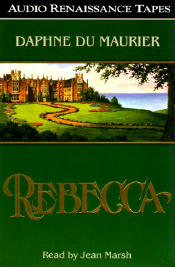 I was ambling through the stacks at the new Canton Library (it's so beautiful, I can't help stopping by whenever I drive downtown) and somehow or other was momentarily rivetted by two shelves of Victoria Holt's gothic fiction. Just reading the titles--Mistress of Mellyn, Legend of the Seventh Virgin, Bride of Pendorric--stirred, for a few seconds only, the deeply buried passion I felt for these titles and other gothics written in the 1950s, 60s and early 70s. Perhaps Daphne Du Maurier resurrected the gothic from its nineteenth-century crypt, writing in the 1940s, methinks.
I was ambling through the stacks at the new Canton Library (it's so beautiful, I can't help stopping by whenever I drive downtown) and somehow or other was momentarily rivetted by two shelves of Victoria Holt's gothic fiction. Just reading the titles--Mistress of Mellyn, Legend of the Seventh Virgin, Bride of Pendorric--stirred, for a few seconds only, the deeply buried passion I felt for these titles and other gothics written in the 1950s, 60s and early 70s. Perhaps Daphne Du Maurier resurrected the gothic from its nineteenth-century crypt, writing in the 1940s, methinks.
 Christmas-related events have prevented me from doing much blogging this week. A whirlwind book-buying extravaganza at Brookline Booksmith for all my nephews and friends kept me busy yesterday morning. A tree-trimming party with my young friends (ages 11 and 13) yesterday afternoon made my spirits bright. We had a blast--designing the tree, struggling with the lights, drinking hot chocolate with marshmallows, munching on the most decadent chocolate cookies, playing the Christmas music they requested (I collect Christmas CDs). I have so much fun with these two, I hate to see them grow up!
Christmas-related events have prevented me from doing much blogging this week. A whirlwind book-buying extravaganza at Brookline Booksmith for all my nephews and friends kept me busy yesterday morning. A tree-trimming party with my young friends (ages 11 and 13) yesterday afternoon made my spirits bright. We had a blast--designing the tree, struggling with the lights, drinking hot chocolate with marshmallows, munching on the most decadent chocolate cookies, playing the Christmas music they requested (I collect Christmas CDs). I have so much fun with these two, I hate to see them grow up!
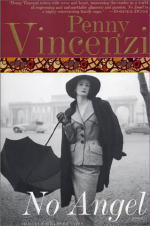 I'm immersed in a wonderful book, the likes of which I thought I'd never see again.
I'm immersed in a wonderful book, the likes of which I thought I'd never see again.  Last night's walk with Sophie was wondrous. The full moon cast a bluish light on the snow and all the trees draped in white. It was cold, I suppose, but I didn't feel it because there was no wind. It would've been a perfect night for skiing, so why haven't I skiied? This storm was so much more than I'd bargained for--that's why.
Last night's walk with Sophie was wondrous. The full moon cast a bluish light on the snow and all the trees draped in white. It was cold, I suppose, but I didn't feel it because there was no wind. It would've been a perfect night for skiing, so why haven't I skiied? This storm was so much more than I'd bargained for--that's why.
 I spent all of yesterday morning digging out my car--the dogmobile. Fortunately Ken felt strong enough to help. The huge chunks of ice, deposited by the town snowplow, made the going rough.
I spent all of yesterday morning digging out my car--the dogmobile. Fortunately Ken felt strong enough to help. The huge chunks of ice, deposited by the town snowplow, made the going rough.
